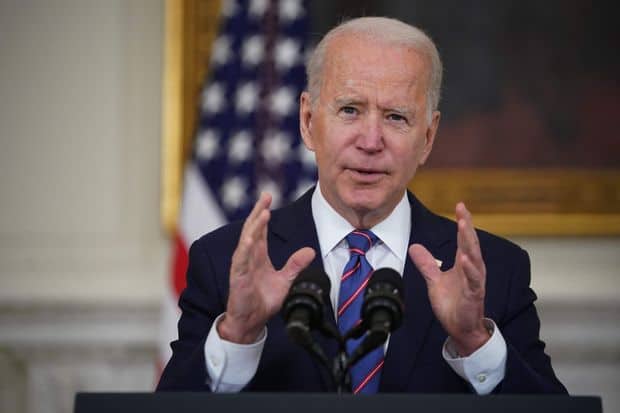Nikita Rumsey is a student at Harvard Law School.
In a victory for the Biden Administration, the House passed a $1.2 trillion infrastructure bill late Friday, giving final approval to a central piece of President Biden’s domestic agenda that aims to rebuild the country’s public works system, expand access to high-speed internet service and provide funding for new climate resilience initiatives. Speaker Nancy Pelosi presided over a daylong drama that pitted conservative Democrats against progressives, but which ended in a 228-to-206 vote, with 13 Republicans joining all but six Democrats in support of the measure. House progressives had been tactically withholding their support for the infrastructure bill to force an agreement on the larger social policy and climate change bill – the Build Back Better Act – while conservative Democrats refused to support the larger legislation absent an official cost estimate from the Congressional Budget Office. Yet on Friday, enough progressives, including Rep. Pramila Jayapal (D-WA), decided to accept a written commitment from five conservative colleagues to support the social safety net and climate package in mid-November, provided the CBO estimate shows that the bill is fully paid for, in exchange for their votes in favor of the infrastructure bill.
As to the contents of the bipartisan infrastructure bill itself, it will deliver $550 billion of federal investment in the country’s infrastructure over five years, including everything from roads and bridges to the nation’s broadband, water and energy systems. For example, the bill calls for $110 billion for roads, bridges and major infrastructure projects, $40 billion for bridge repair and replacement, as well as $11 billion for transportation safety and $65 billion for broadband infrastructure. Additionally, the package will provide $39 billion to modernize public transit, as well as $66 billion to passenger and freight rail, including a proposal to modernize the Amtrak Northeast Corridor line and bring rail service to areas outside the Northeast and mid-Atlantic regions. Elsewhere, the bill provides $7.5 billion for zero- and low-emission buses and ferries, as well as another $7.5 billion toward a network of plug-in electric vehicle chargers.
Meanwhile, just a day after OSHA’s recent publication of its emergency temporary standard (ETS) requiring large employers to mandate COVID-19 vaccination or regular testing, a federal court unilaterally suspended the rule’s enforcement nationwide. Indeed, a three-judge Fifth Circuit panel—notably, the same panel that prevented the district court from enjoining Texas’s radical anti-abortion bill, SB8, when providers challenged it—stayed enforcement of OSHA’s private-employer vaccine or test mandate based on an assertion that the mandate raises “grave statutory and constitutional issues.” OSHA’s publication of the rule, which as an ETS is meant to last only six months, prompted a flurry of lawsuits from Republican state attorneys general, private companies and other organizations seeking to block it. With multiple lawsuits already filed in several circuits, including the Fifth, Sixth, Eighth and Eleventh, and more likely on the way, federal rules governing multi-circuit litigation will demand that the cases be consolidated and heard by one court as determined by a lottery. Challengers have a 10-day window to file their petitions so they can be included in the lottery.
In other news, a First Circuit panel ruled on Friday that Lyft Inc. drivers must arbitrate claims that they are misclassified as independent contractors and are owed employee benefits by the ride-share giant. In granting Lyft’s motion to compel arbitration, the court rejected the drivers’ argument that they qualify for a Federal Arbitration Act (FAA) exemption for transportation workers engaged in interstate commerce based on their transportation of people to and from the airport. The court declined to extend a previous circuit ruling that found Amazon Flex “last mile” delivery drivers exempt from compulsory arbitration under the same FAA exemption on the grounds that such drivers did in fact contribute to interstate commerce. As Bloomberg noted, with its latest ruling, the First Circuit joined two other appeals courts in ruling in favor of gig companies on the FAA exemption issue. The Ninth and Seventh circuits sided with Uber Technologies Inc. and Grubhub Inc., respectively, in finding that their drivers weren’t engaged in interstate commerce.






Daily News & Commentary
Start your day with our roundup of the latest labor developments. See all
July 15
The Department of Labor announces new guidance around Occupational Safety and Health Administration penalty and debt collection procedures; a Cornell University graduate student challenges graduate student employee-status under the National Labor Relations Act; the Supreme Court clears the way for the Trump administration to move forward with a significant staff reduction at the Department of Education.
July 14
More circuits weigh in on two-step certification; Uber challengers Seattle deactivation ordinance.
July 13
APWU and USPS ratify a new contract, ICE barred from racial profiling in Los Angeles, and the fight continues over the dismantling of NIOSH
July 11
Regional director orders election without Board quorum; 9th Circuit pauses injunction on Executive Order; Driverless car legislation in Massachusetts
July 10
Wisconsin Supreme Court holds UW Health nurses are not covered by Wisconsin’s Labor Peace Act; a district judge denies the request to stay an injunction pending appeal; the NFLPA appeals an arbitration decision.
July 9
the Supreme Court allows Trump to proceed with mass firings; Secretary of Agriculture suggests Medicaid recipients replace deported migrant farmworkers; DHS ends TPS for Nicaragua and Honduras